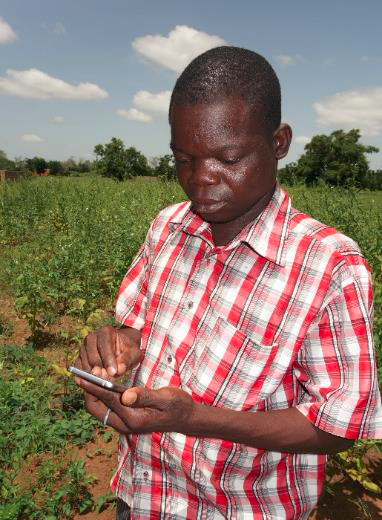
As part of its G-7 commitments to support and improve land governance, the U.S. Government, through USAID, has provided critical funding to the National Land Observatory, or Observatoire National du Foncier (ONF), in Burkina Faso. Over the past two years, the young organization has hired staff, created a 5-year work program, produced a series of targeted land tenure assessments, and issued a regular newsletter called Zoom sur le foncier.
This quarter, the ONF moved beyond observing to doing. It began the process of adapting USAID’s Mobile Application to Secure Tenure (MAST) for use in Burkina Faso. MAST was developed by USAID for use in rural Tanzania. The mobile application and data management system, which are based on the Social Tenure Domain Model, needed to be carefully modified to collect demographic and tenure information in this different legal and social environment. In order to do this, the ONF has created a Core Team of critical stakeholders to lead the adaptation process, in collaboration with USAID and ERC. The newly modified technology will be piloted in Boudry Commune east of the capital city of Ouagadougou. It will have a French user interface that creates the forms needed by local Land Office and Cadastral agents to secure land rights.
In addition, the ONF identified appropriate training materials and developed training modules to instruct local people on the land laws and women’s land rights. In-person trainings will be accompanied by radio programs that discuss the importance of securing land rights to reduce conflict and empower women. Early in the next quarter the ONF, working with the local Land Office and women and men from four villages, will lead efforts to map 2,000 parcels in Boudry Commune. This will help local citizens to secure rights in an area that is experiencing increasing land pressure. This pilot will provide an important test of how to scale the delivery of land rights documentation in a West African context.

